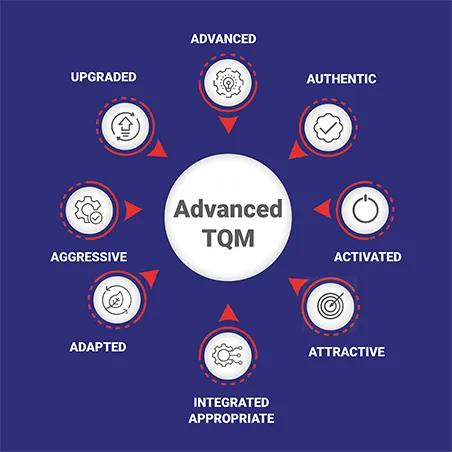
The very existence of TQM International IT division is to become a preferred partner of choice for our clients in their digital transformation journey. It complements TQM International Business Solution division and Managed Service Delivery division by realizing IT system that will address the gaps identified by these divisions for better results. The industry continues to evolve in response to the challenge of ensuring the right products are delivered at the right price to the right person through a process of improved sophistication. TQM International IT provides an opportunity for manufacturers to accelerate their digital-transformation journeys and achieve higher levels of productivity they need in the short term to keep them ahead of the competition. The critical task is to future-proof our client’s digital transformation so that the technology and processes they introduce now don’t lock them out of the next round of advances.
TQM International Industry 4.0 Maturity Model
TQM International IT has a structured & effective maturity model to guide our clients in Digital Transformation journey. This enables our client to gauge their current maturity and strategize systematically their development towards Industry 4.0. TQM International IT division leverages its Industry 4.0 competencies to performs this assessment for our esteemed clients and assist them in defining the roadmap along with the benefits expected.
TQM International IT division engagement models
TQM International IT division is committed in developing systems that are not just adding business value to our clients in short term but are scalable and maintainable for future enhancements. This reduces cost of development over long run with clients having complete transparency & control on the roadmap. Following are few critical TQM International IT competencies that clients can leverage in digital transformation:
- Digitization including App development and automation
- Cloud Computing
- IoT (Internet of Things)
- Data Analytics
- Data Management
- RFID Technologies
- Cyber Security
- Mobile Technologies
- Cognitive Computing
- Advanced Robotics
- 3D Printing

